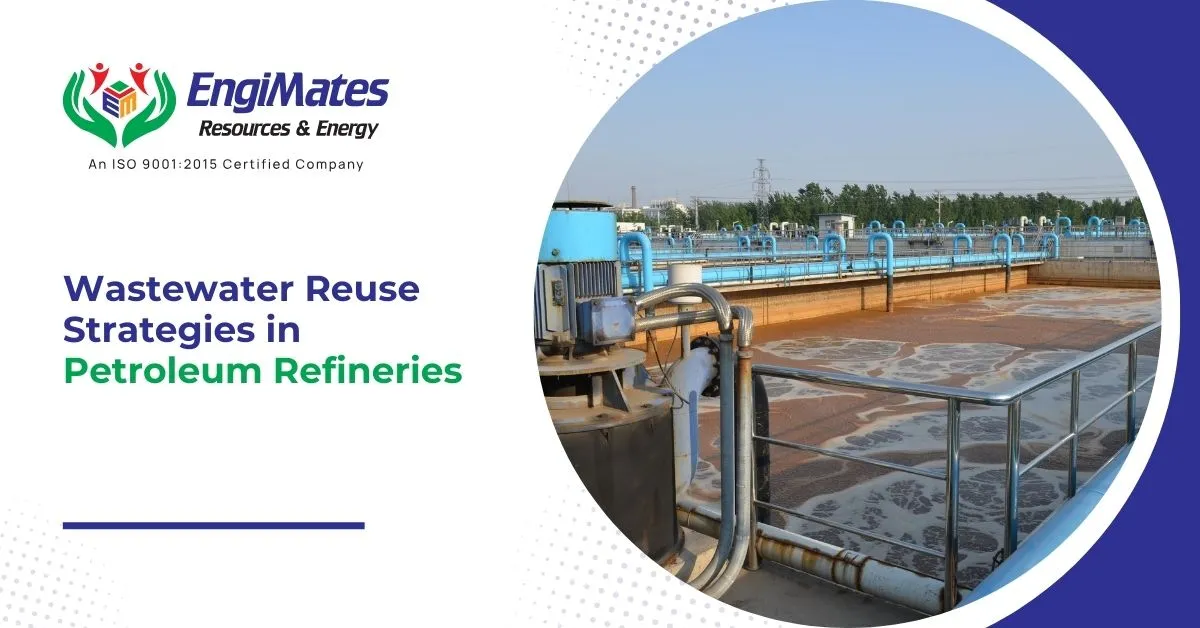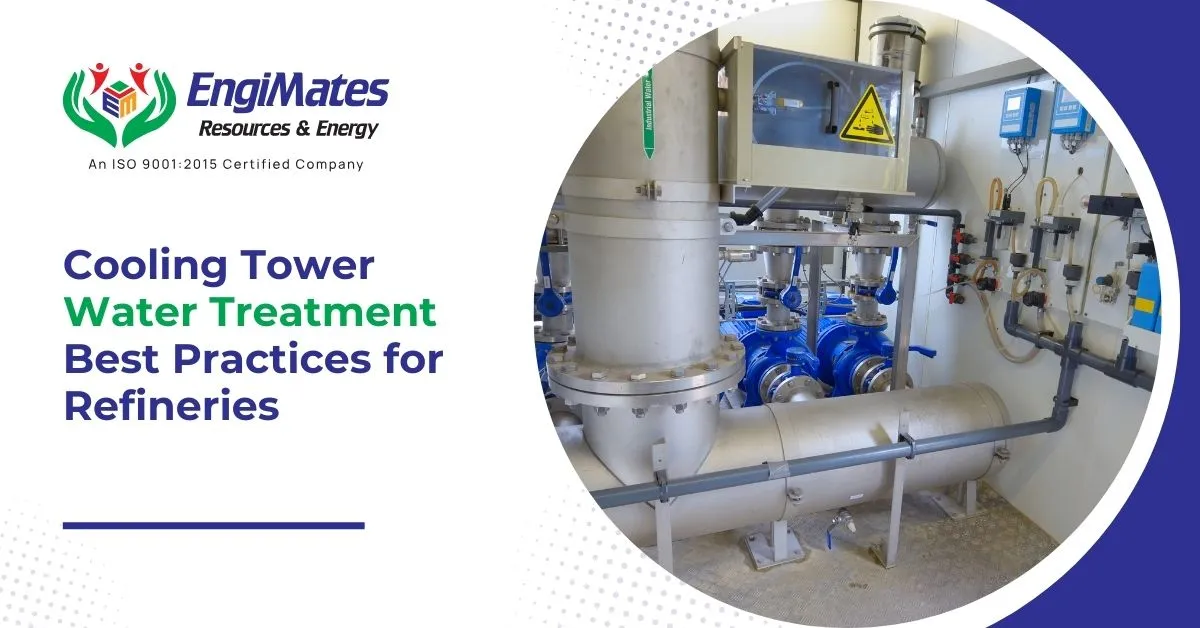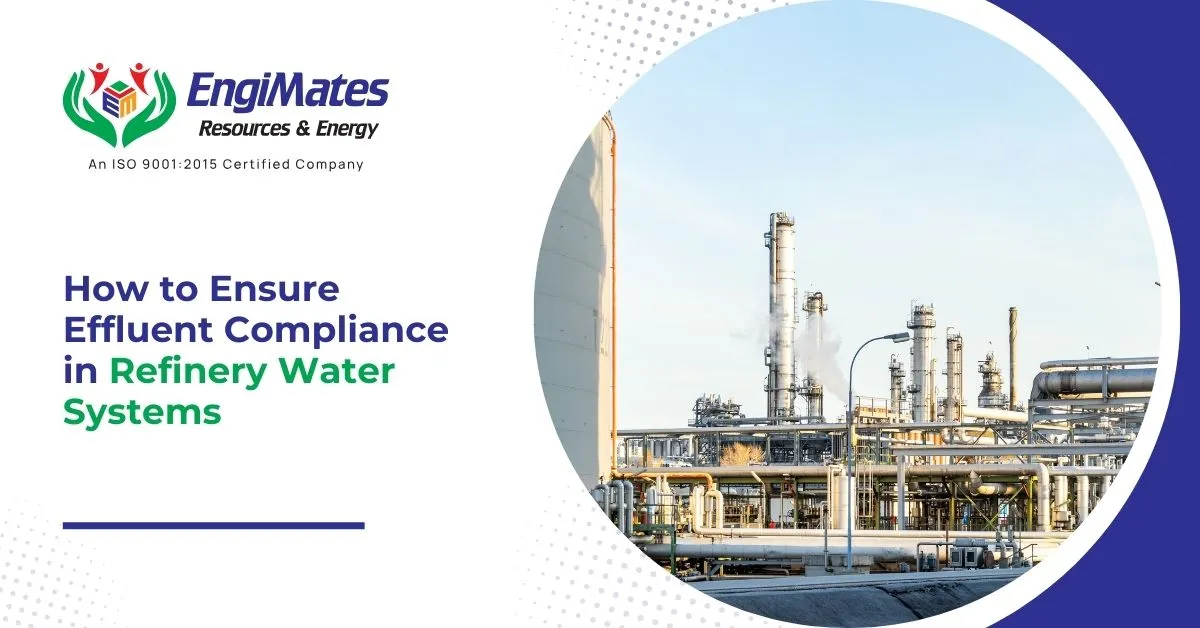Cooling towers are vital in refinery operations, ensuring efficient heat rejection, stable process performance, and…

Petroleum refineries are among the most water-intensive industrial facilities, consuming large volumes for cooling, crude processing, and steam generation. With rising water scarcity and stringent environmental regulations, wastewater reuse strategies in refineries are becoming crucial. By adopting advanced treatment techniques, refineries can minimize freshwater dependency, reduce effluent discharge, and promote sustainable operations.
Table of Contents
Why Wastewater Reuse Matters in Refineries?
Wastewater generated during refining contains hydrocarbons, suspended solids, heavy metals, and chemicals. Without proper treatment, this can harm the environment and increase operational risks. Wastewater reuse not only ensures compliance with effluent regulations but also delivers long-term cost savings and enhances refinery sustainability.
Wastewater Reuse Strategies
Primary Treatment – Oil-Water Separation
The first step involves removing free oil and large suspended solids through gravity separation, API separators, or dissolved air flotation. This reduces the pollutant load before secondary treatment.
EngiMates Services Used:
- Process Simulation & Modeling to optimize separation efficiency.
- Dynamic Simulations for flow and contaminant behavior.
Secondary Treatment – Biological Processes
Techniques such as activated sludge, moving bed biofilm reactors (MBBR), and membrane bioreactors (MBR) are applied to remove organic matter and biodegradable pollutants.
EngiMates Services Used:
- Design & Engineering Phase for customized biological treatment systems.
- Technical Safety Services to ensure safe biological handling and compliance.
Looking to optimize wastewater reuse in your refinery? Contact us for end-to-end solutions in water treatment and sustainable refinery operations.
Tertiary Treatment – Advanced Polishing
To meet stringent water reuse requirements, tertiary treatment methods like reverse osmosis (RO), ultrafiltration, ion exchange, and advanced oxidation are applied. These techniques remove dissolved salts, pathogens, and residual contaminants.
EngiMates Services Used:
- Relief and Flare System Assessment to ensure safe disposal of off-gases from polishing units.
- Concept Development to integrate advanced treatment into existing refinery layouts.
Effluent Reuse Applications
Once treated, wastewater can be reused in:
- Cooling towers
- Boiler feedwater (after demineralization)
- Firewater systems
- Process wash water
EngiMates Services Used:
- Asset Management Services for continuous monitoring and lifecycle management.
- Operate Phase solutions to optimize water reuse operations.
Benefits of Wastewater Reuse in Refineries
- Reduced freshwater dependency and operational costs.
- Compliance with environmental regulations and avoidance of penalties.
- Improved sustainability profile through circular water use.
- Enhanced reliability of refinery utilities and operations.
Frequently Asked Questions
Why is wastewater reuse important in petroleum refineries?
Wastewater reuse helps refineries reduce freshwater demand, cut operating costs, and comply with environmental regulations while ensuring sustainable operations.
What are the main wastewater reuse strategies in refineries?
Common strategies include advanced treatment methods like membrane filtration, biological treatment, reverse osmosis, and tertiary polishing systems to recycle and reuse water.
How do refinery wastewater reuse systems support compliance?
They ensure treated effluents meet regulatory discharge standards, minimize environmental impact, and support sustainability goals in refinery operations.
Which EngiMates services are useful for wastewater reuse projects?
EngiMates supports wastewater reuse with services such as Process Simulation & Modeling, Technical Safety Services, Gas Processing, and Design & Engineering Phase for optimized treatment systems.
Can wastewater be reused for refinery cooling and steam systems?
Yes. Treated wastewater can be safely reused in cooling towers, boilers, and utility systems, reducing freshwater intake and improving overall efficiency.
Conclusion
Wastewater reuse strategies in petroleum refineries are no longer optional but essential for sustainable growth. With advanced technologies and integrated engineering solutions, refineries can turn wastewater into a valuable resource.
EngiMates supports water reuse initiatives with Process Simulation & Modeling, Dynamic Simulations, Asset Management Services, Design & Engineering, and Operate Phase expertise to ensure reliable, efficient, and compliant refinery water management.



